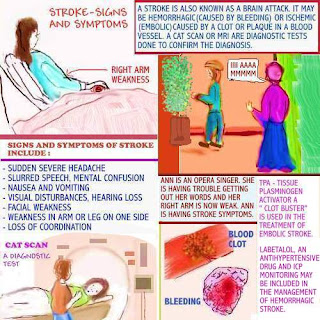STROKE ASSESSMENT

Scenario: In the image above, Ann is an opera
singer. While on stage, she suddenly starts having
trouble getting her words out. Her right arm also
feels weak. These symptoms are classic of someone
experiencing a stroke.
- slurred speech, mental confusion

In the image below, a surfer hits his head on the pier.
This is described as having five steps.
A - assessment
D - diagnosis
P - planning
I - implementation
E - evaluation
Learn more : Care planning











A.JPG) Dearnurses.net is no longer available.
Dearnurses.net is no longer available.



 Dearnurses.net is no longer available.
Dearnurses.net is no longer available.


.JPG)




